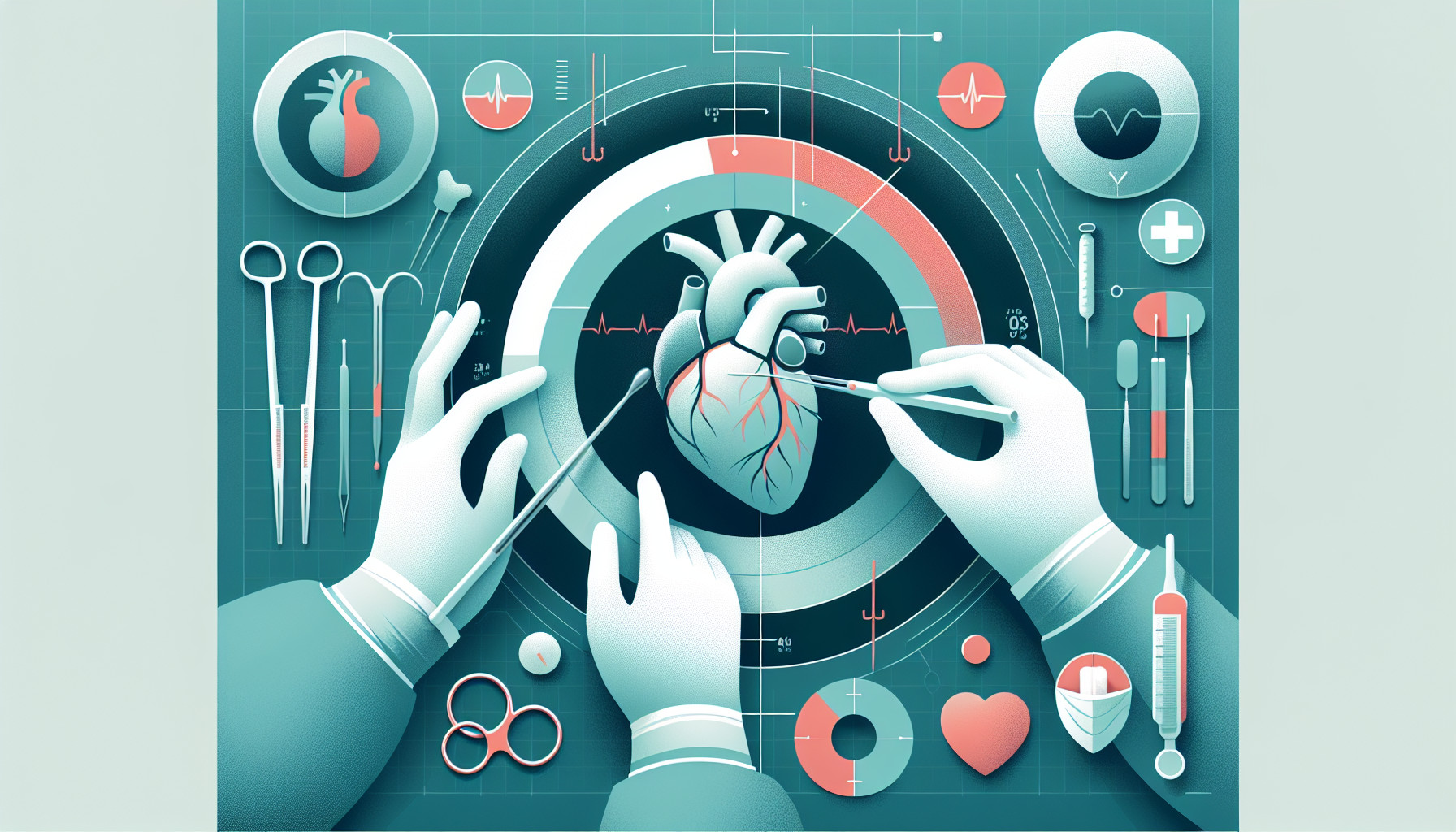Our Summary
This research paper aims to understand the risk of developing deep vein thrombosis (DVT), a condition where blood clots form in deep veins, after a heart procedure known as cardiac catheter ablation. This procedure is commonly used to treat a type of rapid heart rate called supraventricular tachycardia (SVT).
The study was carried out on patients who were having this heart procedure. Patients who were already on blood thinners were not included in the study. After the procedure, ultrasound scans were performed on the patients to look for any signs of DVT.
The study found that out of 80 patients who had the procedure, 7 developed DVT. This suggests that about 9% of patients who have this heart procedure might develop DVT. Interestingly, it was only the leg where the procedure was carried out that had a risk of developing DVT.
The study also found that patients who had a higher level of a certain substance in their blood (D-dimer) before the procedure were more likely to develop DVT.
In conclusion, the study suggests that doctors might want to consider giving blood thinners to all patients having this heart procedure to prevent the development of DVT.
FAQs
- What is the risk of developing deep vein thrombosis (DVT) after a cardiac catheter ablation procedure?
- Does the risk of developing DVT apply to all patients who undergo cardiac catheter ablation, or only those who have a higher level of D-dimer in their blood?
- Based on the study, should all patients undergoing cardiac catheter ablation be given blood thinners to prevent DVT?
Doctor’s Tip
A helpful tip a doctor might tell a patient about cardiac ablation is to stay active and mobile after the procedure to help reduce the risk of developing blood clots. It’s important to follow your doctor’s instructions on post-procedure care and any prescribed medications to prevent complications. Additionally, make sure to attend all follow-up appointments to monitor your recovery progress.
Suitable For
Patients who are typically recommended cardiac ablation are those who have certain types of arrhythmias, such as atrial fibrillation, atrial flutter, or supraventricular tachycardia, that have not responded well to medication or other treatments. These patients may experience symptoms such as palpitations, dizziness, shortness of breath, or chest pain due to their irregular heart rhythms.
Additionally, patients who have structural heart problems, such as congenital heart defects or heart valve abnormalities, may also be recommended for cardiac ablation to help manage their condition.
Overall, patients who are recommended for cardiac ablation are those who have a high risk of developing complications from their arrhythmias and have not responded well to other treatment options. These patients should be evaluated by a cardiologist or electrophysiologist to determine if cardiac ablation is the most appropriate treatment for their specific condition.
Timeline
Before cardiac ablation:
- Patient is diagnosed with supraventricular tachycardia (SVT) and recommended for cardiac catheter ablation.
- Patient undergoes pre-procedure tests and evaluations to assess their overall health and suitability for the procedure.
- Patient may be advised to stop certain medications or adjust their diet before the procedure.
- Patient is informed about the risks and benefits of the procedure and gives consent for the surgery.
After cardiac ablation:
- Patient undergoes the cardiac catheter ablation procedure where a catheter is inserted into the heart to correct the abnormal heart rhythm.
- Patient is closely monitored post-procedure for any complications or side effects.
- Patient may experience some discomfort or soreness at the catheter insertion site.
- Patient is discharged from the hospital and given instructions for post-procedure care, including rest and restrictions on physical activities.
- Patient follows up with their healthcare provider for follow-up visits and monitoring of their heart rhythm.
- Patient may undergo ultrasound scans to check for any signs of deep vein thrombosis (DVT) as a potential complication of the procedure.
- Depending on the findings, the patient may be prescribed blood thinners to prevent or treat DVT.
What to Ask Your Doctor
Some questions a patient should ask their doctor about cardiac ablation include:
- What is the purpose of the cardiac ablation procedure?
- What are the potential risks and complications associated with cardiac ablation?
- How likely am I to develop deep vein thrombosis (DVT) after the procedure?
- Are there any factors that may increase my risk of developing DVT after cardiac ablation?
- What steps can be taken to reduce the risk of DVT following the procedure?
- How will DVT be diagnosed and treated if it occurs after cardiac ablation?
- What are the signs and symptoms of DVT that I should watch out for?
- How long should I expect the recovery process to be after cardiac ablation?
- Are there any lifestyle changes or medications I should consider to prevent DVT after the procedure?
- What follow-up appointments or monitoring will be necessary after the cardiac ablation procedure to check for DVT?
Reference
Authors: Bruce C, Saraf K, Rogers S, El-Omar M, Kirkwood G, Kelland NF, Shah D, Chalil S, Fullwood C, Wright M, Jamil-Copley S, Fox D, Abozguia K, Thachil J, McCollum C, Morris GM. Journal: Heart Lung Circ. 2022 Jul;31(7):1015-1022. doi: 10.1016/j.hlc.2022.01.014. Epub 2022 Mar 14. PMID: 35301985
